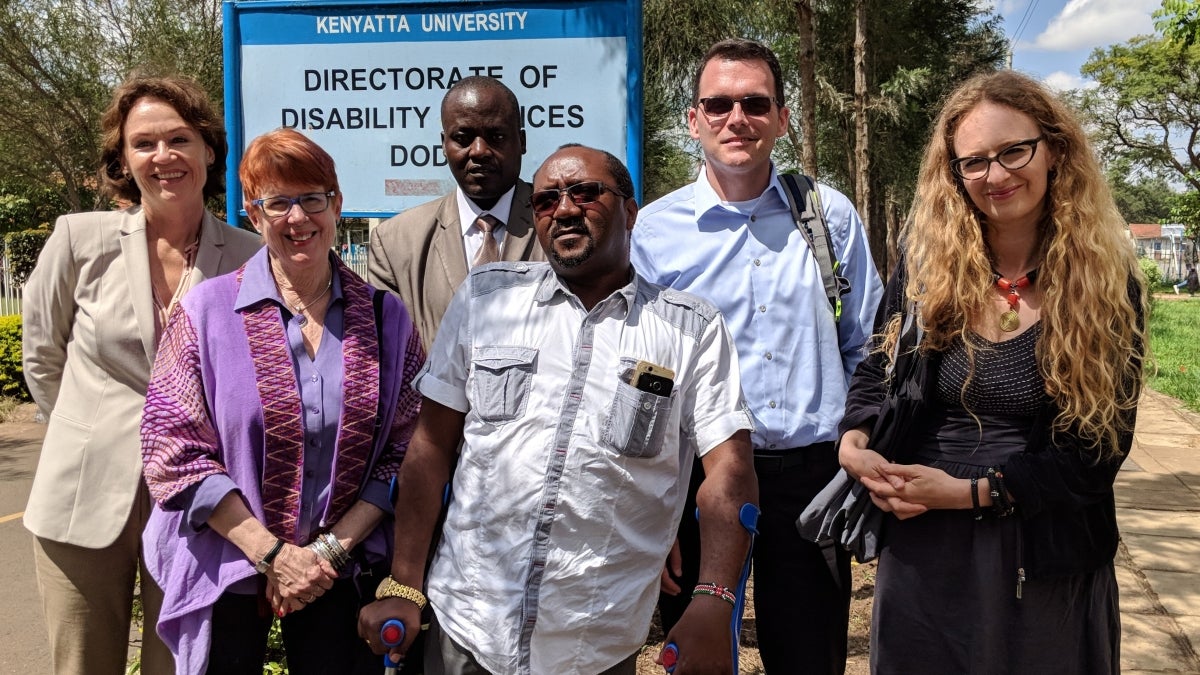ASU team seeks collaboration with Kenyan universities

A team from ASU meeting with representatives from Kenyatta University.
In late May, Professor Nina Berman of the School of International Letters and Cultures, Professor Beth Blue Swadener of the School of Social Transformation and Lecturer Paul Quinn, director of the American Sign Language program in the College of Health Solutions, met with representatives of Kenyan universities to explore various areas of collaboration. Flora Farago, a PhD alumni from the T. Denny Sanford School of Social and Family Dynamics and assistant professor at Stephen F. Austin State University in Texas, also joined the group.
At Kenyatta University, the ASU team met with colleagues from early childhood education, special-needs education, engineering, international programs and collaborations, and the Office of Disability Services. Kenyatta University (KU) is a public research university just outside of Nairobi and is one of the top universities in Kenya, ranked second among all public and private universities in the country.
The group also visited the Thika location of Mount Kenya University — a highly ranked private university. The ASU team met with colleagues and representatives from special needs, education and the Quality Assurance & Linkages Office.
The conversations on campus were followed by a visit to Joytown School for the Physically Disabled.
Swadener and Farago also had meetings at Moi University in Eldoret.
Quinn visited several primary schools for the deaf in the region, both residential and mainstreamed format. He also went to see vocational training sites for young adults who are deaf. During those visits, he identified a significant need for speech pathology services. This area promises great potential for collaborative efforts between the speech and hearing science academic program and Kenyatta University’s communication disorders department.
The goal of the visits was to establish collaboration agreements with ASU that create the framework for easier facilitation of faculty exchanges, student exchanges, joint research collaborations, and study abroad programs, among other activities.
Arizona and Kenya share features and concerns in many areas, among them issues related to climate change, water, drought, mining, land ownership, indigenous populations, cultural and linguistic diversity, tourism, border insecurity, drug trafficking and poverty. An abundance of collaborative and comparative research projects and exchanges involving Arizona and Kenya is foreseeable.
More Health and medicine
College of Health Solutions program doing its part during Salute to Service
It wasn’t always easy for Marine veteran Chuck Hale when he first returned to civilian life. But he’ll never forget the help he…

What makes human culture unique?
Why is human culture — the shared body of knowledge passed down across generations — so much more powerful than animal cultures?“…

ASU honors students work on HPV research as part of Barrett College's largest-ever group thesis
Not every undergraduate student comes across the opportunity to do research as part of a team. Even fewer have had the chance to…